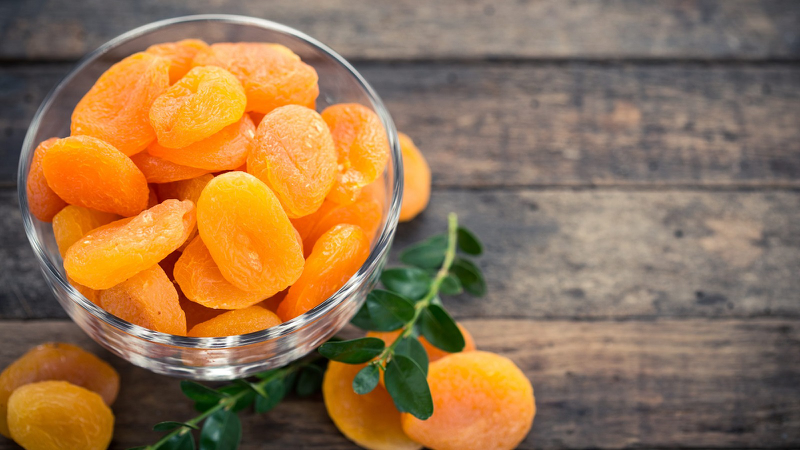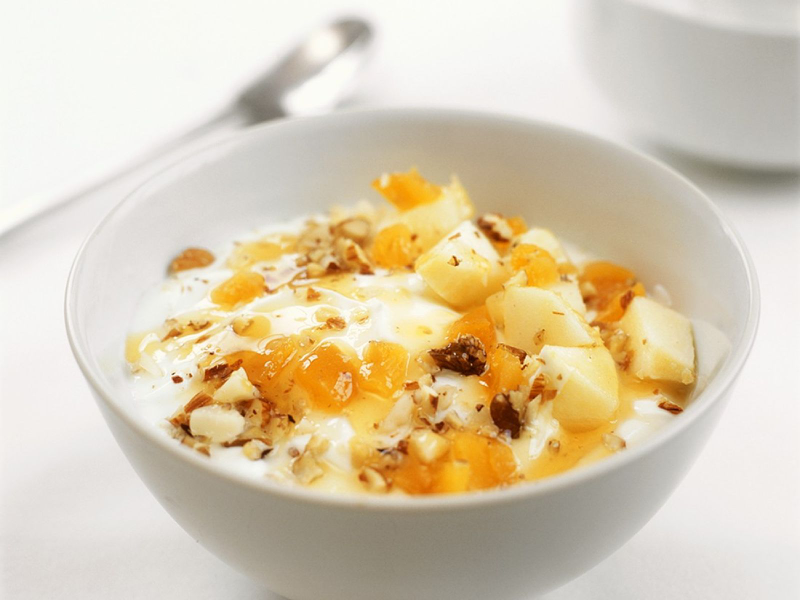Dried apricots are often known as a snack, but few people know the nutritional value of this fruit. With a harmonious sweet and sour taste, dried apricots are loved by many people. Below are 7 health benefits of dried apricots and some notes when eating them.
Apricots are a very familiar fruit to Vietnamese people. This fruit often has a sour taste, so it is often used to make dried apricots, soak in wine, make jam, dried apricots, etc. In particular, dried apricots are a dish made from fresh apricots thanks to the drying method. Drying is to remove the water content, making it easy to preserve and transport while still retaining the nutritional value of fresh apricots.
Similar to other fruits, apricots also contain many vitamins and minerals that are good for the body. Therefore, dried apricots are also a great and convenient source of nutrients. Let’s explore the wonderful benefits of dried apricots and how to use dried apricots in your daily diet in this article.
Nutritional value of dried apricots
According to the United States Department of Agriculture, 100 grams of dried apricots contain:
- Calories: 240;
- Carbohydrates: 63g;
- Protein: 3.4g;
- Sugar: 51g;
- Fiber: 12g;
- Fat: 0.4g.

Dried apricots with a sweet and sour taste are a favorite of many people.
In addition, dried apricots also contain many vitamins and minerals such as:
- 47% of daily vitamin A needs
- 4% of daily vitamin C needs
- 18% of daily vitamin E needs
- 13% of daily vitamin K needs
- 5% of daily calcium needs;
- 23% of daily copper needs;
- 26% of daily potassium needs;
- 16% of daily magnesium needs;
- 17% of daily iron needs;
- 23% of daily copper needs.
What are the health benefits of dried apricots?
Improve constipation
Dried apricots are rich in fiber, which helps improve constipation effectively. In addition, fiber also promotes the growth of beneficial bacteria in the intestines and improves digestive health. Therefore, eating dried apricots every day in moderation is also a way to help your digestive system work more smoothly.
Good for the skin
The antioxidant content in apricots such as vitamin E and vitamin C brings many benefits to skin health. In addition to protecting the skin from the effects of UV radiation (ultraviolet rays) from sunburn. Eating dried apricots also provides nutrients that help prevent premature wrinkles and improve skin softness.

Dried apricot cake is very rich in energy.
Good for the eyes
Not only containing a lot of vitamin A, dried apricots are also rich in beta-carotene and other carotenoids. These are all ideal nutrients for healthy, bright eyes, especially good for the retina, lens and vision in general. Thanks to that, dried apricots effectively reduce the risk of macular degeneration and cataracts.
Improve anemia
The iron and copper content in dried apricots participate in the synthesis of hemoglobin. Therefore, people with anemia can use dried apricots to improve fatigue, dizziness, and weakness caused by anemia.
Support and prevent bone diseases
Calcium, copper, phosphorus, and manganese are all minerals that are essential for bone development. Therefore, using dried apricots properly can help strengthen bones and prevent age-related bone problems such as osteoporosis and brittle bones.
Support cancer prevention
Antioxidant compounds in dried apricots have the ability to prevent free radicals. Thanks to that, this fruit is very effective in preventing cancer.
Electrolyte balance
Dried apricots contain a lot of potassium with the same function as an electrolyte. Therefore, supplementing a sufficient amount of potassium from dried apricots will help improve bloating and maintain healthy blood pressure.
How to eat dried apricots and some notes
Dried apricots can be preserved for a long time and used in many different dishes. With the great effects mentioned above, you should add dried apricots to your diet through the following ways:
- Eat dried apricots directly: This is the most traditional and convenient way to eat. Dried apricots can be an afternoon snack or at times when you need to quickly replenish energy.
- Used as an ingredient for salads: For “fans” of delicious fresh salads, dried apricots are definitely not to be missed. Just add a little thinly sliced dried apricots to make the dish more attractive.
- Eat dried apricots with yogurt: A few pitted dried apricots mixed with yogurt not only helps balance sweet and sour, stimulates the taste buds but also adds nutrients that are very good for health.
- Dried apricots in smoothies: Fruits and dried apricots can be combined to create a smoothie that is both delicious and provides high nutritional value.
- Baking ingredients: Dried apricots are also often used as an ingredient for baked goods such as cookies, bread, and cakes.

Yogurt combined with dried apricots is very good for the digestive system.
Although dried apricots are nutritious and have many health benefits, eating a lot is not always good. Eating a moderate amount of dried apricots is very good, but eating too much can cause excess calories and sugar in the body. In addition, dried apricots have a characteristic sour taste, so you should limit eating apricots when hungry because it can increase stomach acid, causing discomfort.
In short, dried apricots are not just a simple snack but can be a nutritional supplement for the body. However, to maximize the benefits of this fruit, you need to choose a quality product and use it in moderation and properly. Hopefully, this article will help you better understand dried apricots as well as how to eat apricots that are good for your health.





